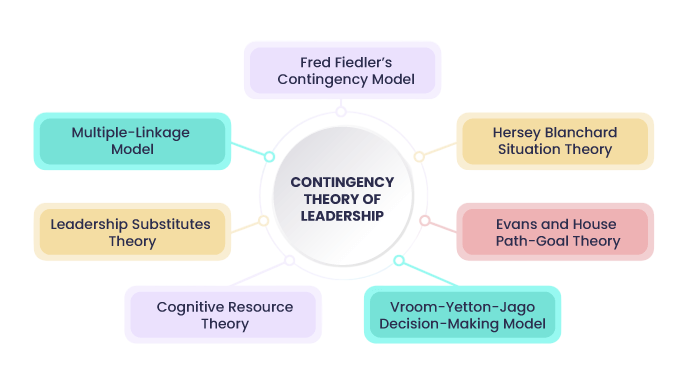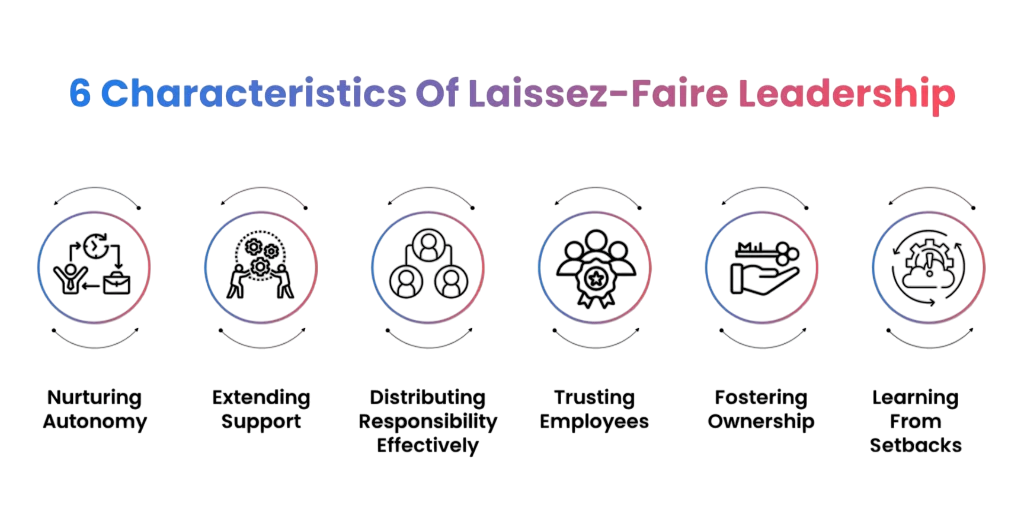
- What is Leadership Theories
- Trait Theory
- Behavioral Theories
- Contingency Theory
- Transformational Leadership
- Transactional Leadership
- Situational Leadership
- Servant Leadership
- Participative Leadership
- Laissez-Faire Leadership
- Authentic Leadership
- Modern Applications in Business and Tech
- Conclusion
What is Leadership Theories
Leadership Theories is the process of influencing and guiding individuals or groups toward the achievement of goals. It is not merely a position or title but a set of behaviors, skills, and qualities that enable a person to inspire, motivate, and steer others. Leaders exist in all walks of life from corporate boardrooms and political arenas to classrooms and communities. Leadership involves making strategic decisions, fostering teamwork, developing others, and creating a vision that others can rally around. To cultivate these qualities alongside professional communication and career readiness, explore Placement and Softskills Training a leadership-enhancing program that equips individuals with the interpersonal, strategic, and presentation skills needed to inspire teams and succeed in diverse professional environments. As organizations and society evolve, the understanding of leadership continues to develop, leading to the emergence of various leadership theories and styles that cater to different situations and individuals.
Trait Theory
Trait Theory suggests that certain individuals possess inherent traits that make them effective leaders. This theory, one of the earliest approaches to studying leadership, assumes that leaders are born, not made. Traits such as intelligence, confidence, determination, integrity, and sociability are frequently associated with effective leadership. Researchers have attempted to identify a definitive list of traits that predict leadership success. To apply these strengths in tech-driven environments beyond programming, Explore Non-Coding IT Jobs a practical guide to roles in project management, UI/UX design, business analysis, digital marketing, and other leadership-friendly domains within the IT industry. However, this theory has been criticized for its lack of universality and for ignoring situational factors. Despite this, Trait Theory laid the groundwork for future leadership studies by highlighting the importance of individual characteristics. In modern applications, trait-based assessments are often used in hiring and leadership development programs to identify potential leaders.
To Explore Soft Skill in Depth, Check Out Our Comprehensive Soft Skill Certification Training To Gain Insights From Our Experts!
Behavioral Theories
- Behavioral theories focus on the actions of leaders rather than their traits. These theories suggest that leadership can be learned and developed through observation and practice. Key studies, such as those conducted at Ohio State University and the University of Michigan, identified two primary types of leader behaviors: task-oriented and people-oriented.
- Task-oriented leaders focus on setting goals, structuring tasks, and ensuring productivity. People-oriented leaders emphasize interpersonal relationships, employee well-being, and team cohesion. Effective leaders often balance these two dimensions. Behavioral theories underpin many modern leadership training programs, which aim to teach specific behaviors that lead to successful leadership outcomes.
- Contingency theories argue that the effectiveness of a leadership style depends on the context or situation. Fred Fiedler’s Contingency Model is one of the most prominent examples. It posits that a leader’s effectiveness is determined by how well their leadership style matches the situation.
- Key factors include the leader-member relationship, task structure, and the leader’s positional power. Other models, such as Hersey and Blanchard’s Situational Leadership Theory, also emphasize adapting leadership styles to the maturity and competence levels of followers. Contingency theories have practical relevance in today’s dynamic work environments, where flexibility and adaptability are crucial.
- Situational leadership, developed by Hersey and Blanchard, emphasizes the importance of adapting leadership style to the readiness and development level of followers. It identifies four leadership styles: directing, coaching, supporting, and delegating. Each style is appropriate for a different level of follower competence and commitment.
- For example, new employees may need a directing style with clear instructions, while experienced employees benefit from a delegating approach that grants autonomy. Situational leadership is widely used in management training because of its practical application to a variety of workplace scenarios.
- Servant leadership turns the traditional power hierarchy upside down, focusing on the needs of followers rather than the authority of the leader. Servant leaders prioritize empathy, listening, stewardship, and community building. Their goal is to develop and empower others.
- This leadership style fosters trust, collaboration, and ethical behavior. It is especially effective in service-oriented industries, nonprofits, and educational institutions. Companies like Southwest Airlines and Starbucks have embraced servant leadership principles to enhance employee engagement and customer satisfaction.
- Authentic leadership emphasizes genuineness, transparency, and ethical behavior. Authentic leaders are self-aware, lead with integrity, and build trust through open communication. They are consistent in their values and actions, fostering loyalty and respect among followers.
- This style is particularly effective in building long-term relationships and navigating ethical challenges. Authentic leadership is gaining prominence in today’s business world, where stakeholders value corporate responsibility and ethical conduct.
Are You Interested in Learning More About Soft Skill ? Sign Up For Our Soft Skill Certification Training Today!
Contingency Theory

Transformational Leadership
Transformational leadership focuses on inspiring and motivating followers to exceed expectations and achieve higher levels of performance. Transformational leaders create a vision, communicate it effectively, and foster a culture of innovation and change. They are known for their charisma, inspirational motivation, intellectual stimulation, and individualized consideration. To develop these leadership traits alongside strong communication and interpersonal skills, explore Softskills Training a dynamic program designed to enhance emotional intelligence, persuasive communication, and team influence for aspiring leaders across industries. This style is particularly effective in times of organizational change or when high levels of commitment and creativity are required. Transformational leadership is associated with increased employee satisfaction, motivation, and performance. In tech companies and startups, transformational leaders are often the driving force behind innovation and rapid growth.
Are You Considering Pursuing a Master’s Degree in Soft Skill? Enroll in the Soft Skill Masters Program Training Course Today!
Transactional Leadership
Transactional leadership is based on a system of rewards and punishments to manage followers. It focuses on clear structures, defined roles, and task completion. Leaders set specific goals and monitor performance, providing feedback and reinforcement based on results. While often viewed as less dynamic than transformational leadership, transactional leadership is highly effective in stable environments that require efficiency and consistency. To support such leadership with streamlined operations and data-driven oversight, explore Enterprise Resource Planning Tools a strategic solution that integrates core business functions, enhances accountability, and drives consistent performance across departments. It is commonly used in military, manufacturing, and bureaucratic settings where adherence to procedures and standards is critical.
Are You Preparing for Soft Skill Jobs? Check Out ACTE’s Soft Skill Interview Questions & Answer to Boost Your Preparation!
Situational Leadership
Servant Leadership
Participative Leadership
Participative leadership, also known as democratic leadership, involves including team members in decision-making processes. Leaders consult with their team, seek input, and encourage collaboration. While the final decision may still rest with the leader, the process is inclusive. To support such collaborative workflows in digital environments, explore What are SharePoint Framework a comprehensive guide to building responsive, team-centric web parts and extensions that enhance productivity and communication within Microsoft 365 ecosystems. This style enhances employee morale, creativity, and commitment. It works best in environments that value innovation and collective problem-solving. Participative leadership is common in modern workplaces that emphasize teamwork and knowledge sharing, such as tech firms and agile project teams.
Laissez-Faire Leadership
Laissez-faire leadership is a hands-off approach where leaders provide minimal direction and allow team members to make decisions independently. This style works well with highly skilled and self-motivated individuals who require little supervision. To support such autonomous teams with integrated business management tools, explore What is Netsuite a detailed guide to cloud-based ERP solutions that streamline operations, enhance visibility, and empower decentralized decision-making across departments.

However, it can lead to confusion and lack of accountability if not managed properly. While not suitable for all situations, laissez-faire leadership can foster innovation and autonomy in research and creative fields where freedom is essential for success.
Authentic Leadership
Modern Applications in Business and Tech
In today’s fast-paced and technology-driven world, leadership styles must evolve to meet new challenges. The rise of remote work, digital transformation, and global competition has reshaped how leaders operate. In tech companies, transformational and participative leadership styles are prevalent. Leaders must inspire innovation, manage diverse teams across geographies, and embrace change. Agile project management often requires a blend of situational and participative leadership to empower cross-functional teams. To support these leadership models with streamlined client engagement and data-driven decision-making, explore Customer Relationship Management a strategic approach that helps organizations build trust, personalize communication, and drive long-term customer loyalty. Data-driven decision-making and the use of AI tools have also influenced leadership. Leaders now rely on analytics to guide strategy and performance evaluation. Emotional intelligence and cultural competence are increasingly important in globalized work environments. Moreover, modern leaders are expected to champion sustainability, diversity, and inclusion. Servant and authentic leadership styles are well-suited for these goals, promoting ethical conduct and a people-centric approach.
Conclusion
Leadership Theories in the modern world are multifaceted. Understanding various theories and adapting styles to suit organizational needs and individual differences is key to success. To apply these leadership concepts with clarity, empathy, and effective communication, explore Softskills Training a practical program that empowers professionals to lead diverse teams, navigate workplace dynamics, and foster inclusive, high-performing environments. As the business and tech landscapes continue to evolve, so too must leadership approaches, blending traditional wisdom with innovative practices to lead with impact and purpose.





